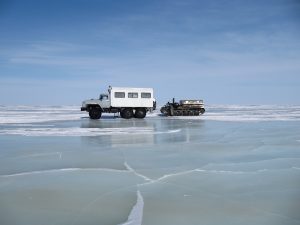Transport and communication
Connecting the Arctic: Transport and Communication
ArcticDefinitions of the Arctic vary according to environmental, geographical, political, cultural and scientific perspectives. Some scientists define the Arctic as areas having a high latitude, long winters, short, cool summers,... More research is reliant on cooperation and collaboration across national borders and territories. The full potential of science and research in the ArcticDefinitions of the Arctic vary according to environmental, geographical, political, cultural and scientific perspectives. Some scientists define the Arctic as areas having a high latitude, long winters, short, cool summers,... More is often not realised due to limitations in the free movement of researchers, their equipment, samples and data across borders and territories. This can result in missed opportunities for research, duplication of effort, and other inefficiencies that hold back the development of knowledge and understanding of all socio-ecological systems in the ArcticDefinitions of the Arctic vary according to environmental, geographical, political, cultural and scientific perspectives. Some scientists define the Arctic as areas having a high latitude, long winters, short, cool summers,... More, and how they interconnect with global systems.
Data transfer is slow in many parts of the ArcticDefinitions of the Arctic vary according to environmental, geographical, political, cultural and scientific perspectives. Some scientists define the Arctic as areas having a high latitude, long winters, short, cool summers,... More. This reduces real time information on environmental problems and events to the outside world and awareness of ArcticDefinitions of the Arctic vary according to environmental, geographical, political, cultural and scientific perspectives. Some scientists define the Arctic as areas having a high latitude, long winters, short, cool summers,... More residents to external impacts. Poor communication and lack of geostationary satellites affect safety communication and positioning systems. Stringent cross border regulations often unnecessarily inhibit analyses of materials by appropriate laboratories and may delay access for scientists across boundaries. Traditional knowledge and current practices of using ice roads, snowscapes and permafrostPermafrost is frozen ground that remains at or below zero degrees Celsius (32 degrees Fahrenheit) for two or more years. It forms in regions where the mean annual temperature is... More landscapes for travel are becoming inappropriate and dangerous and under these challenging conditions, excellent communication systems are essential and possibly lifesaving.
This work package (WP5) aims to provide information to reduce barriers for exchange of people and scientific samples across national borders. WP5 will communicate to ArcticDefinitions of the Arctic vary according to environmental, geographical, political, cultural and scientific perspectives. Some scientists define the Arctic as areas having a high latitude, long winters, short, cool summers,... More policymakers, an assessment and identification of bottlenecks for the free mobility of researchers, their samples and their data based on station managers’ and TA users’ perspectives. This WP will also make recommendations of possible ways in which the implementation of the Agreement on Enhancing International ArcticDefinitions of the Arctic vary according to environmental, geographical, political, cultural and scientific perspectives. Some scientists define the Arctic as areas having a high latitude, long winters, short, cool summers,... More Scientific Cooperation could be developed and improved for the benefit of international ArcticDefinitions of the Arctic vary according to environmental, geographical, political, cultural and scientific perspectives. Some scientists define the Arctic as areas having a high latitude, long winters, short, cool summers,... More research. This WP further aims to improve communication from the ArcticDefinitions of the Arctic vary according to environmental, geographical, political, cultural and scientific perspectives. Some scientists define the Arctic as areas having a high latitude, long winters, short, cool summers,... More region in general but specifically among local communities, research stations and their surroundings while introducing new smart instrumentation possibilities through improved communication.
-
D5.1 Report on the Significance of the Agreement on Enhancing International Arctic Scientific Cooperation for Research in the Arctic
application/pdf
-
MS41 report pdf + presentation
application/pdf

